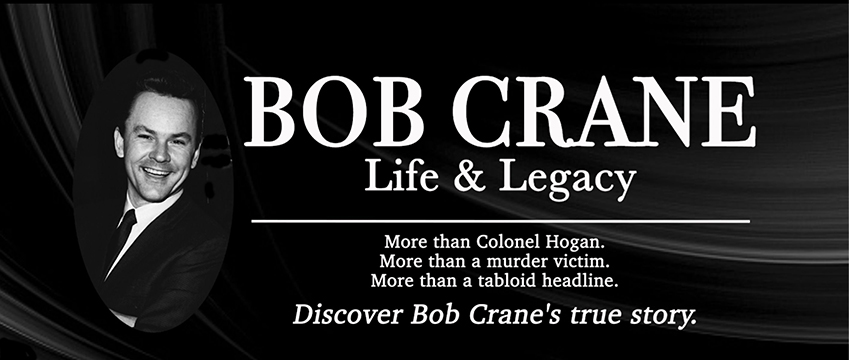“And who cares.”
Those three words told me so much about Robert Clary.
As most fans know, Robert Clary, who played Corporal Louis Le Beau in the TV show Hogan’s Heroes, passed away peacefully on the 16th of November 2022. He was 96 years old.
What a life this man lived. Deported from France to concentration camps in Ottmuth and Buchenwald when he was just 16 years old, Robert Clary (born Robert Max Widerman) survived, he said, by being fit for work, and by entertaining (he sang for SS soldiers every other Sunday, according to the Jewish Virtual Library). What stuck in his mind were what he called the “remarkable” words of his mother as they were being separated and she was being sent to Auschwitz: “Behave. Do what they tell you to do.” He did, and said it may have saved his life. But of the 13 members of his family deported with him, Robert was the only one to come home.
For a long time, Clary said, he pushed the Holocaust experience to the back of his mind. He didn’t want to have that consume him; if he did, the evil would win. When he eventually embraced the good he could do by recounting his story, and testifying to the truth of the Holocaust, he told his audiences, “Never hate.”
Robert made his way to the United States and carved out a career in the entertainment industry for himself. All the biographies and obituaries you are no doubt seeing online can fill you in on all of that. Of course, he was best known for playing the passionate Le Beau, in a show about being a prisoner of the Germans (and thwarting them constantly!). And that’s how we crossed paths.
Clary spent a lot of time during the Hogan’s six-year run explaining that the sitcom was set in a POW camp, not a concentration camp, and that the difference between the two types of camp was like night and day. And he loved working with the cast and crew. In his book, From the Holocaust to Hogan’s Heroes, Clary wrote, “For the most part, human beings are not very nice. That’s why when you find those who are, you cherish them.” Throughout his life, he always had good words to say about the people and the atmosphere on the set. Clearly, he cherished his Hogan’s family.
We spent more than five years trying to get Robert Clary to tell us his stories of working on the set. We were researching Bob Crane: The Definitive Biography, and who better to talk about Hogan’s Heroes than one of the heroes?
Starting in 2003, he said no. No. He will not discuss this and will not get involved in gossip. Who could blame him for being wary of us — we were no one, and that purported biopic which I will not name here had burned so many people who loved Bob Crane, while trying to tear down any shred of dignity that Bob had in his life. So Robert Clary’s answer was a firm NO. When Bob was killed in 1978, the cast and crew of Hogan’s Heroes made a pact that they would only agree to be interviewed if they could tell the good things about Crane. Perhaps unsurprisingly, they got no takers.
Eventually, we were fortunate enough to connect with actress Arlene Martel, who had guest-starred on the show several times, and after our interview she volunteered to approach Clary on our behalf. I still laugh a bit when I remember her email about his reaction. Suffice to say, the answer was still no.
But we persisted, and in 2008, with so many more interviews under our belt, and so many of those being with people Clary knew—and would have trusted—from his Hogan’s days, we tried again. I sent him a letter, with a long, updated list of contributors.
This time, I got an answer.
He clearly didn’t want to be interviewed by phone or in person, but he wrote me a letter in his own hand. Two full pages of anecdotes and memories. He enjoyed working with Bob Crane on the set, he said. Bob rarely fluffed his lines, and was really a pleasure to work with. He related that Crane was the only Republican among Democrats on set, and that when they disagreed politically, the star’s voice would rise to a “screeching soprano” pitch. Clary always told him, “Bob, changing from baritone to soprano will not make your argument right,” and they would laugh about it.
Then he wrote briefly about Bob Crane’s “way of living,” as he called it. And it was here that Robert Clary revealed his whole self to me. “Who am I to be judgmental (What’s good for the goose may not be good for the gander). And who cares.”
 |
| Portion of letter written by Robert Clary, sent to Linda Groundwater in 2008 regarding Bob Crane. © Authors of Bob Crane: The Definitive Biography. Do not use without written permission. |
Those three little words, clearly squeezed in after re-reading his original letter, were important to him. He wanted us to know exactly what he thought of how Bob’s memory was being treated. He wanted us to know that there was more to Bob than that. He wanted us to know that what Bob Crane was doing was Bob Crane’s business. And who cares.
It fit in perfectly with his other life philosophy: When you find people who are nice, cherish them.
We are forever grateful for Robert Clary’s long, well-lived life.
May his memory be a blessing.

